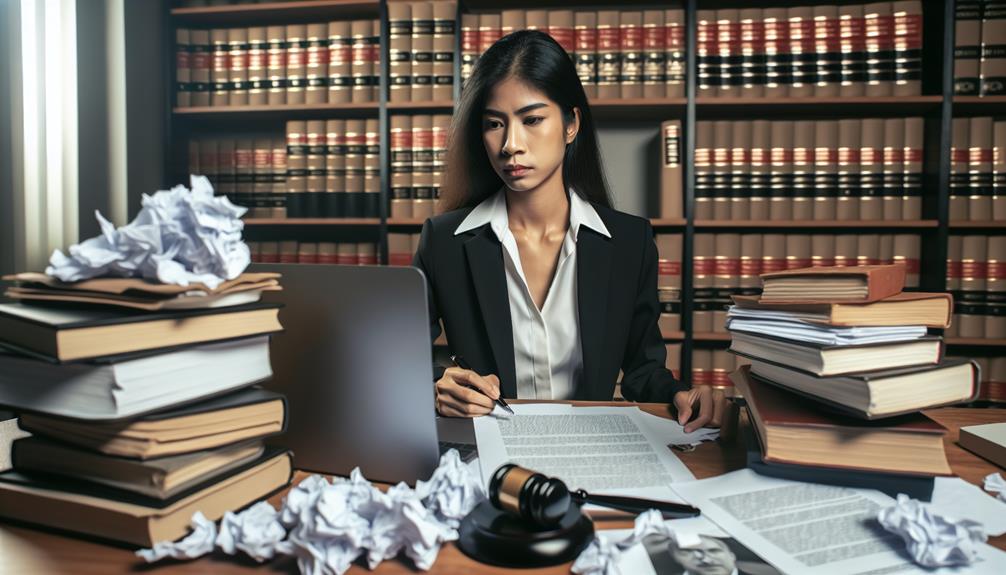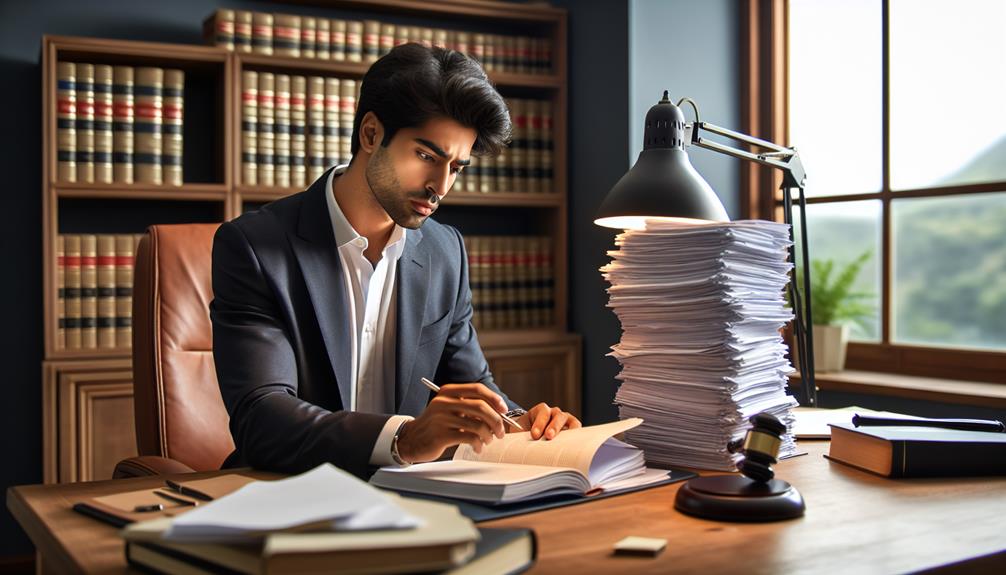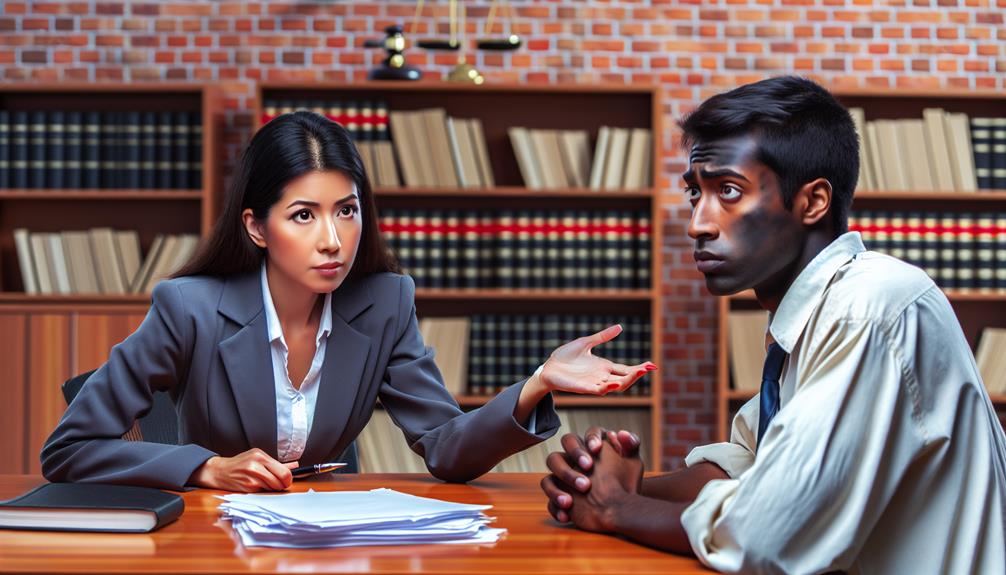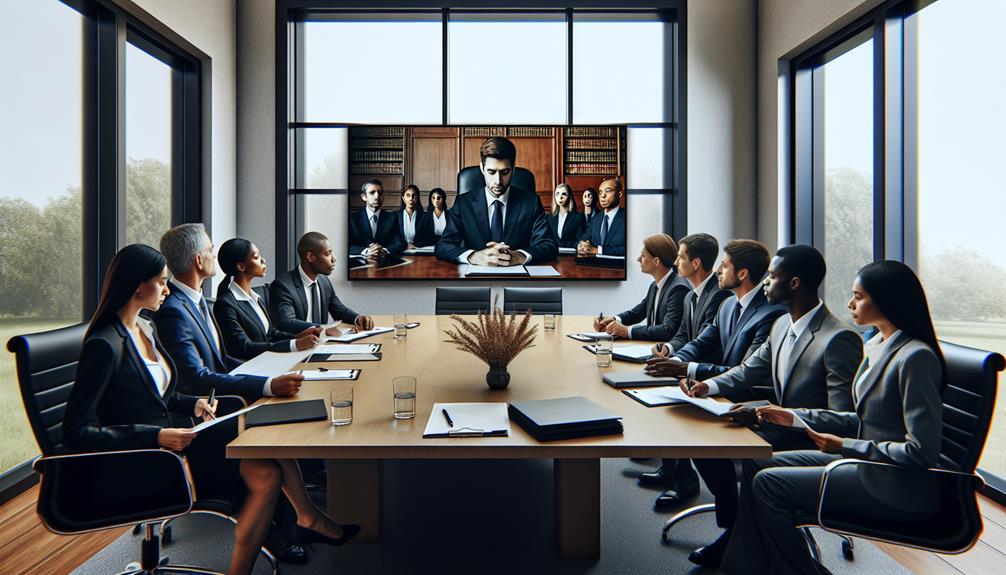As an attorney, I understand the value of effective preparation in all aspects of my work. Whether it's in the courtroom or during a deposition, thorough preparation is crucial to achieving successful outcomes.
When it comes to video depositions, the stakes are particularly high, making the need for meticulous preparation even more vital. From conducting thorough research to mastering technical aspects, there are several key reasons why effective preparation is essential.
Firstly, conducting thorough research is crucial before the video deposition. This includes gathering all relevant information about the case, the parties involved, and any potential witnesses. By having a comprehensive understanding of the facts and issues at hand, attorneys can ask more targeted and effective questions during the deposition.
Secondly, mastering the technical aspects of video depositions is essential. This includes ensuring that the recording equipment is functioning properly, understanding how to properly frame shots, and knowing how to effectively use video conferencing technology if necessary. By being well-versed in these technical aspects, attorneys can ensure that the deposition proceeds smoothly and without any technical glitches that could hinder the effectiveness of the testimony.
Lastly, effective preparation significantly impacts the outcome of a video deposition. By thoroughly preparing, attorneys can anticipate potential challenges or objections that may arise during the deposition and be better equipped to address them. Additionally, effective preparation allows attorneys to develop a clear strategy for questioning witnesses, ensuring that they can elicit the necessary information to support their case.
In conclusion, effective preparation is crucial for successful video depositions. By conducting thorough research, mastering technical aspects, and anticipating challenges, attorneys can significantly impact the outcome of the deposition. Therefore, taking the time to prepare meticulously is essential in achieving favorable results.
Key Takeaways
- Thorough research is essential for uncovering critical facts and evidence, identifying key witnesses and relevant documents, and building a strong foundation for the case.
- Utilizing innovative techniques such as organizing evidence digitally, utilizing advanced technology and software, and simulating a remote deposition environment can enhance preparation efficiency and effectiveness.
- Role-playing exercises can help develop rapport with the deponent, anticipate objections, structure questions logically, and prepare persuasive arguments and counter-arguments.
- Ensuring a smooth deposition experience involves choosing the right camera angles and lighting setup, familiarizing with the deposition process and technical aspects, and using videoconferencing tools for remote depositions.
Importance of Thorough Research

Thorough research is crucial when preparing for video depositions, as it allows me to gather the necessary information and build a strong foundation for my case. Conducting comprehensive research provides numerous advantages that can significantly impact the outcome of a video deposition.
One of the key advantages of thorough research is the ability to uncover critical facts and evidence. By thoroughly analyzing the case, I can identify key witnesses, relevant documents, and potential legal precedents that can strengthen my argument during the deposition. This knowledge equips me with the necessary tools to effectively cross-examine opposing witnesses and present a compelling case.
Additionally, thorough research allows me to anticipate and prepare for potential challenges and obstacles in the deposition process. By understanding the strengths and weaknesses of my case, I can proactively address any potential disadvantages that may arise during the deposition. This level of preparedness enables me to navigate the deposition with confidence and agility.
However, it's important to note that there are also some disadvantages associated with extensive research. The process can be time-consuming and resource-intensive, requiring significant effort and investment. Furthermore, there's a risk of information overload, where excessive research may lead to a cluttered and unfocused deposition strategy.
Gathering and Organizing Evidence
To effectively gather and organize evidence for a video deposition, I employ a systematic approach that ensures clarity, accessibility, and a strong foundation for my case. Documenting evidence is the cornerstone of a successful deposition, and it's crucial to adhere to legal requirements throughout the process.
First and foremost, I meticulously collect all relevant documents, photographs, and videos that directly pertain to the case. These materials are then organized in a digital format, allowing for easy access and searchability. By utilizing advanced technology and innovative software, I'm able to efficiently categorize and annotate the evidence, making it readily available for examination during the deposition.
Additionally, I ensure that each piece of evidence is properly authenticated and meets the legal requirements for admissibility. This includes maintaining a detailed chain of custody, accurately recording dates and times, and obtaining necessary certifications or affidavits.
Preparing Key Questions and Strategies

Now that the evidence is meticulously gathered and organized, I can focus on developing key questions and strategies to effectively navigate the video deposition.
One of the most important aspects of a successful video deposition is developing rapport with the deponent. Building a connection with them can help create an atmosphere of trust and openness, which can lead to more candid and valuable responses. To achieve this, I'll make sure to establish a friendly and professional tone, maintain eye contact, and listen actively to their answers.
In addition to developing rapport, it's crucial to prepare strategies for managing objections during the video deposition. Anticipating potential objections and developing effective responses in advance can help maintain the flow of the deposition and prevent unnecessary delays. By thoroughly reviewing the case and considering potential objections, I can develop persuasive arguments and counter-arguments that will keep the deposition on track.
To further enhance the effectiveness of the video deposition, I'll also develop a clear and organized line of questioning. This will involve structuring the questions in a logical manner, ensuring they're concise and focused, and avoiding any ambiguity. By carefully crafting my questions, I can elicit the necessary information and present a strong and compelling case.
Understanding Technical Aspects and Equipment
Understanding the technical aspects and equipment is essential for a smooth and successful video deposition. When it comes to capturing a compelling deposition, camera angles and lighting setup play a crucial role in ensuring that the visuals are clear and impactful.
Camera angles are important because they can enhance or diminish the impact of a witness's testimony. By choosing the right camera angle, you can capture the most relevant facial expressions, body language, and gestures, which can help convey the witness's credibility or lack thereof. It's important to experiment with different angles to find the one that best captures the essence of the deposition.
Equally important is the lighting setup. Poor lighting can lead to grainy or distorted footage, making it difficult to discern facial expressions or read documents. On the other hand, proper lighting can enhance the visibility of the witness and create a professional and engaging atmosphere. The use of professional lighting equipment, such as softboxes or ring lights, can ensure that the lighting is even and consistent throughout the deposition.
Role-Playing and Mock Deposition Practice

Practicing mock depositions and engaging in role-playing exercises is a crucial step in effectively preparing for video depositions. Role playing practice allows us to simulate real-life scenarios and develop the skills needed to communicate effectively during the actual deposition. By taking on different roles, we can explore various perspectives, anticipate challenging questions, and refine our responses. This practice not only enhances our understanding of the case but also increases our confidence in delivering clear and concise answers.
Effective communication is key in video depositions, as it allows us to convey our thoughts and arguments with clarity and impact. Role-playing exercises provide an opportunity to practice active listening and formulate well-thought-out responses. By simulating different scenarios, we can identify potential communication pitfalls and develop strategies to overcome them. This prepares us to handle unexpected challenges during the actual deposition, ensuring that we maintain control and present our case effectively.
Innovative techniques, such as incorporating technology and interactive elements into role-playing exercises, can further enhance the effectiveness of our preparation. By using videoconferencing tools, we can simulate the remote deposition environment and become familiar with the technical aspects of the process. This enables us to troubleshoot any issues that may arise and ensures a smooth and seamless deposition experience.
Conclusion
In conclusion, effective preparation is vital for video depositions. It ensures a thorough understanding of the case, the gathering and organization of evidence, and the development of key questions and strategies.
Additionally, effective preparation allows for a better grasp of the technical aspects and equipment involved in video depositions. This understanding enhances the quality and credibility of the deposition.
Furthermore, by role-playing and engaging in mock deposition practice, individuals can further refine their skills. This practice increases their chances of success in the video deposition process.

